
by pestcontrolseos | Apr 17, 2024 | Blog, Pest Info & Articles
Rodents are unwelcome guests in any home, causing damage and potentially spreading diseases. Traditional rodent control methods often involve harsh chemicals or inhumane traps, leading many to seek more natural and humane solutions. One such potential solution that has gained attention is the use of orange oil.
This blog post explores whether orange oil can effectively kill or repel rodents and how it compares to other pest control methods.
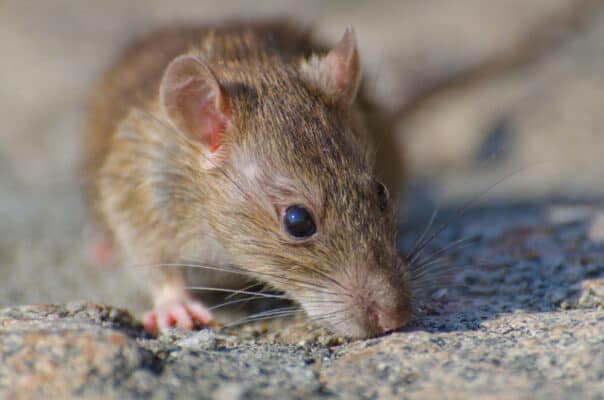
Understanding Orange Oil and Its Properties
Orange oil, a natural extract derived from the peels of oranges, is celebrated not only for its refreshing scent but also for its diverse range of applications, from cleaning products to pest control solutions. Understanding the unique properties of orange oil is key to unlocking its potential in various uses, including its role in managing rodent populations.
What is Orange Oil?
Orange oil is obtained through a process called cold pressing, where the oil is extracted from the rind of the orange fruit.
This essential oil is rich in d-limonene, a compound that contributes to its citrusy aroma and is thought to be responsible for many of its beneficial properties. Its pleasant smell and natural origin make it a popular choice for those seeking eco-friendly alternatives to synthetic chemicals.
The Science Behind Orange Oil and Rodents
The effectiveness of orange oil against rodents can be attributed to its strong scent and the presence of d-limonene. Research suggests that rodents, which rely heavily on their sense of smell for navigation and identifying food sources, may find the intense citrus aroma of orange oil overwhelming or unpleasant, leading to its potential as a natural repellent.
Additionally, d-limonene has been studied for its insecticidal and pesticidal properties, hinting at orange oil’s broader applications in pest control beyond just its olfactory impact.
The Effectiveness of Orange Oil in Rodent Control
Repellent vs. Lethal Effects
While there is evidence to suggest that orange oil can repel rodents, its ability to kill them is less clear. The primary action of orange oil in pest control is through deterrence, by making environments less attractive to rodents due to the strong scent and possibly affecting their behavior or health when in contact with concentrated forms.
Research Findings on Orange Oil and Rodents
Some studies have indicated that orange oil could influence rodent behavior and health, potentially reducing their presence in treated areas. However, these effects are more about repelling than outright killing.
The direct lethal effect of orange oil on rodents has not been conclusively proven and may require concentrations higher than what’s typically used for household pest control.
How to Use Orange Oil for Rodent Control
DIY Solutions and Precautions
For those interested in trying orange oil as a rodent repellent, creating a diluted spray solution is one approach. Mixing orange oil with water and spraying it around areas of your home where rodents are a problem can help deter them. However, it’s crucial to use the correct concentration to avoid damaging surfaces or harming pets.
Professional Pest Control Services
For more severe rodent infestations, professional pest control services may offer solutions that include the use of orange oil among other methods. These professionals can ensure the safe and effective application of orange oil, maximizing its repellent effects while minimizing risks.
Benefits and Limitations of Using Orange Oil for Rodents
Advantages of Orange Oil in Pest Control
The use of orange oil for rodent control offers several benefits, including its natural origin, pleasant scent, and lack of harsh chemicals. It provides a more environmentally friendly and potentially safer alternative to traditional pest control methods.
Challenges and Considerations
However, there are limitations to using orange oil as a sole method for rodent control. Its primary action is repellent rather than lethal, and its effectiveness can vary depending on the severity of the infestation and how it’s applied. Additionally, repeated applications may be necessary to maintain its deterrent effect.
Harnessing Orange Oil: A Natural Solution for Rodent Repellent
The path to achieving a rodent-free environment may appear challenging; however, the promise of natural solutions such as orange oil presents a viable option. While it may not eliminate rodents directly, its repellent qualities and natural composition render it an appealing choice for individuals pursuing a safer and more humane method of pest management. The efficacy of orange oil, when applied strategically, plays a crucial role in controlling and diminishing rodent populations within residential spaces.
Dr. Termites specializes in eco-friendly pest control, expertly integrating natural solutions like orange oil to keep homes safe and rodent-free. We specialize in combining innovative, eco-friendly pest control solutions with professional expertise to ensure your home remains safe, comfortable, and rodent-free.
Don’t let rodents disrupt your peace. Reach out to Dr. Termites for a consultation. Our team is ready to create a pest control plan using natural solutions like orange oil for safe and effective results. Let’s work together for a rodent-free home that also cares for the environment. Start your journey to a cleaner, greener home with Dr. Termites.
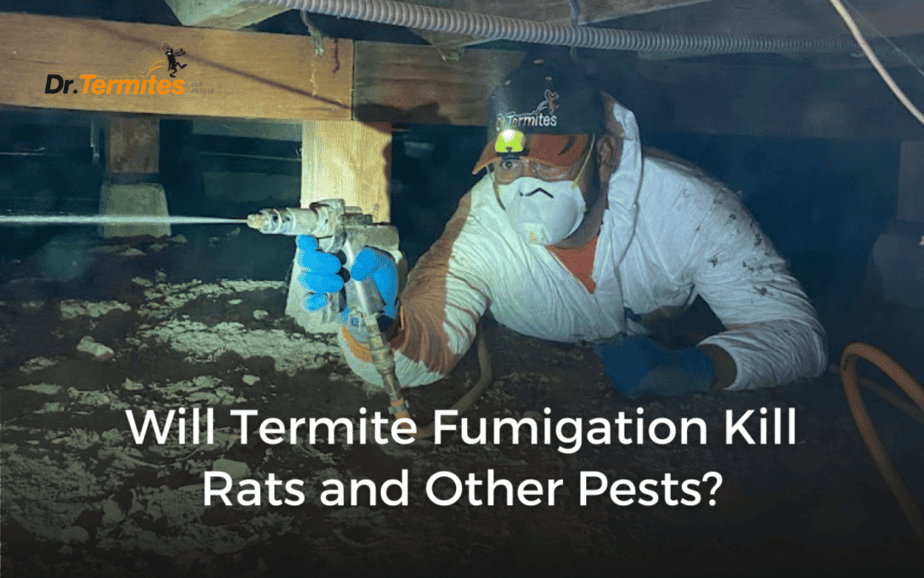
by pestcontrolseos | Apr 4, 2024 | Blog, Pest Conrol
When homeowners consider termite control, their primary concern is to protect their property from the destructive power of termites. However, homes are ecosystems that harbor various pests, including rodents like rats.
The question arises: Can the process used to eradicate termites also impact rats and additional unwanted creatures? This blog post examines the efficacy of termite fumigation in dealing with rats and other pests, providing a comprehensive overview of what homeowners can expect.
The Essence of Termite Fumigation
What is Termite Fumigation?
Termite fumigation, a pest control technique, employs gas pesticides to eliminate termites in infested structures. It’s highly effective for extensive, hidden infestations, as it reaches termites in areas otherwise inaccessible. This method ensures that even the most secluded termites are targeted, providing a comprehensive solution to termite problems.
How Does It Work?
The fumigation process involves enclosing the infested structure, often with a tent, before introducing a fumigant gas. This gas is allowed to permeate the structure for 24 to 72 hours, reaching into cracks, crevices, and wood where termites reside. This method ensures that the termites are effectively eradicated, providing a thorough solution to termite infestation by targeting their hidden sanctuaries and eliminating them completely.
Impact on Rats and Other Pests
Will Rats Be Affected?
Rats, as mammals, differ physiologically from insects such as termites. Fumigation gasses lethal to termites might not always be as effective against rats. However, if rats are inside a structure during termite fumigation, the high concentration of fumigant needed to exterminate termites could also prove fatal to rats. This highlights the importance of considering all occupants of a structure when planning fumigation treatments.
Other Pests and Considerations
Termite fumigation targets not just termites and rats but also household pests like cockroaches, bedbugs, and ants. However, its effectiveness depends on the pest’s lifecycle and fumigant concentration. To fully eradicate a range of pests, it’s often essential to employ additional, targeted pest control techniques. This ensures a comprehensive approach to pest management, addressing various life stages and species for more effective control.
Factors Influencing Fumigation Effectiveness
Sealing and Preparation
The effectiveness of fumigation in eliminating pests greatly depends on the quality of home sealing and preparation prior to commencement. Ensuring proper sealing is crucial as it guarantees the fumigant gas penetrates all possible pest-hiding places, significantly increasing the chances of a successful pest eradication process.
Concentration and Exposure Time
The effectiveness of fumigation largely depends on two critical factors: the concentration of the fumigant used and the duration of exposure. Utilizing higher concentrations and allowing for longer exposure periods significantly enhances the probability of eradicating a broader spectrum of pests, making these parameters essential for successful pest control efforts.
Integrated Pest Management (IPM)
A Holistic Approach
Integrated Pest Management (IPM) is a comprehensive approach that blends biological, cultural, physical, and chemical methods to reduce health, environmental, and financial risks. It emphasizes long-term prevention and control of various pests, such as termites and rats, aiming to achieve effective pest management while minimizing potential negative impacts. By adopting IPM strategies, we can efficiently address pest-related challenges in a sustainable and responsible manner.
Implementing IPM in Your Home
Effective pest management via Integrated Pest Management (IPM) starts with prevention. Homeowners should regularly maintain their homes to seal potential entry points and minimize moisture and clutter, which attract pests. It’s also crucial to monitor pest activity regularly. Early detection through monitoring allows for timely intervention, preventing small issues from escalating into severe infestations. Adopting these proactive measures ensures a healthier, pest-free home environment.
Maximizing Pest Control: The Role of Termite Fumigation and Integrated Pest Management Strategies
Termite fumigation is a powerful method for eradicating termites, and it can also impact rats and other pests present in the treated structure. However, its effectiveness varies depending on several factors, including the type of pest and the concentration of the fumigant. For comprehensive pest control, homeowners should consider Integrated Pest Management (IPM) strategies that address the broader spectrum of potential invaders. By combining preventive measures, regular monitoring, and targeted interventions, you can maintain a pest-free home, safeguarding your property and health.
At Dr. Termites, we specialize in offering holistic pest solutions that cater to the unique needs of your home. Our expertise in Integrated Pest Management (IPM) allows us to provide preventative strategies, precise monitoring, and targeted interventions designed to keep your home safe from termites, rats, and a variety of other pests.
Maintaining a pest-free environment is crucial for protecting your property and health. If you’re encountering pest issues or seeking to prevent future infestations, let Dr. Termites be your partner in pest control. Contact us today to schedule a consultation and learn how our services can bring peace of mind and lasting protection to your home.
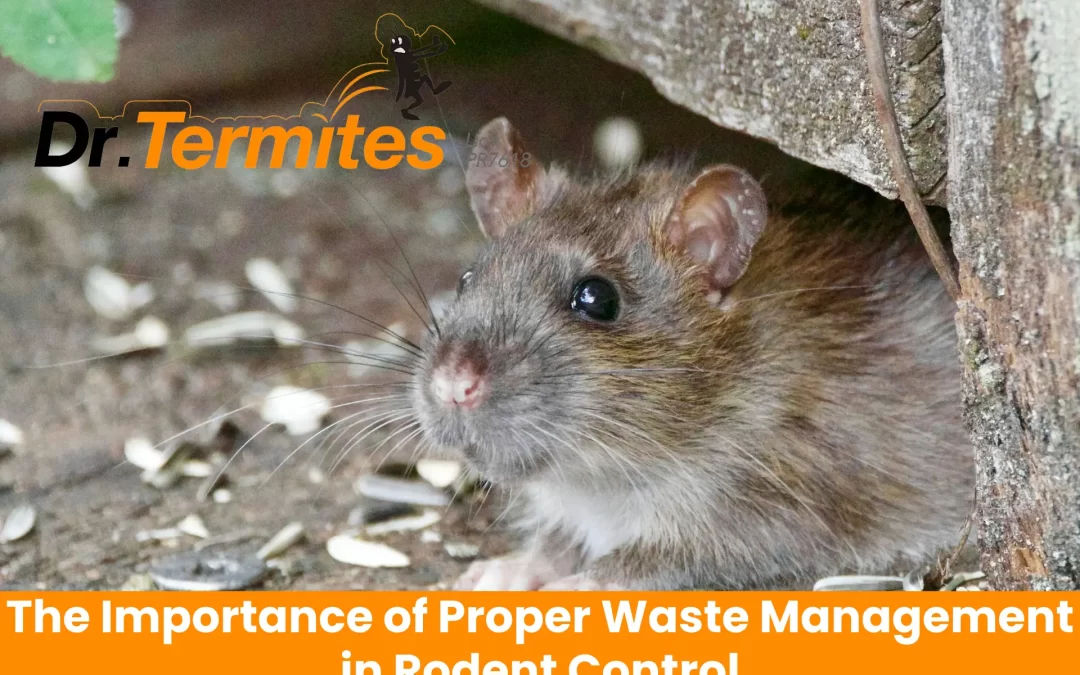
by pestcontrolseos | Mar 21, 2024 | Blog
Rodents, a common problem in many homes and businesses, can have serious implications for public health and property. Managing them effectively is crucial to ensure a safe and healthy environment. While there are a variety of methods available for rodent control, one strategy that often goes overlooked is proper waste management. Yet, it is an essential component that can significantly reduce the risk of rodent infestation.
This article aims to shed light on the importance of waste management in controlling rodent populations and offers practical solutions to help you maintain a rodent-free environment.
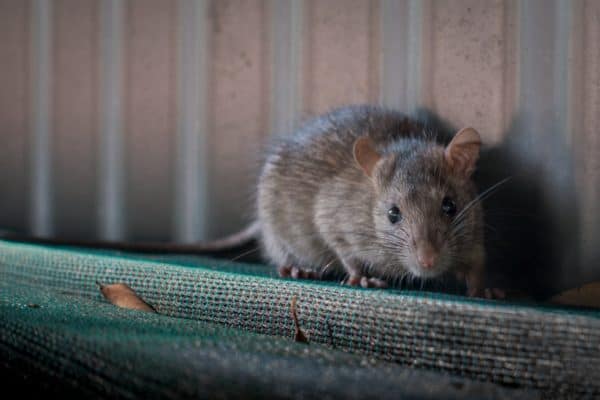
The Connection Between Waste Management and Rodent Control
Understanding the link between waste management and rodent control is key to maintaining a healthy environment. It requires a shift in perspective to appreciate how these two seemingly unrelated aspects are intrinsically tied together.
The Attraction of Waste for Rodents
Firstly, it’s important to understand that rodents like rats and mice are drawn towards food sources. Waste, particularly improperly managed food waste, serves as an enticing buffet for these creatures. When waste isn’t disposed of correctly or regularly, it becomes a consistent supply of nourishment for rodents, making your property a potential hotspot for infestation.
How Poor Waste Management Facilitates Rodent Infestation
Ineffective waste disposal systems or irregular waste collection schedules can lead to buildup of waste, creating perfect breeding grounds for rodents. These conditions not only attract rodents but provide them with shelter, allowing populations to grow rapidly.
The Role of Effective Waste Management in Rodent Control
Effective waste management is an essential component in the overall strategy for controlling rodent populations. This relationship is not immediately apparent, but a closer look reveals how interconnected these two elements are.
Waste Disposal Systems
Effective waste disposal systems play a crucial role in rodent control. Regularly cleaned and tightly sealed bins prevent rodents from accessing waste. Additionally, placing bins at a distance from buildings can reduce the chances of rodents entering your premises.
Regular Waste Collection
By ensuring regular waste collection, adhering to correct disposal protocols, and maintaining cleanliness, one can deter rodents from inhabiting a particular location. Thus, efficient waste management is not only a crucial part of a comprehensive rodent control strategy but also a significant contributor to a cleaner, healthier environment. It is evident that managing waste effectively is a vital step towards mitigating the risk of rodent infestations.
Guidelines for Implementing Effective Waste Management in Rodent Control
Understanding and implementing proper waste management is pivotal in controlling rodent populations. A well-structured approach to waste management can significantly reduce the risk of rodent infestations, thereby maintaining a cleaner and healthier environment.
Recognizing the Importance of Waste Management
The first step in effective rodent control is recognizing the significant role that waste management plays. Rodents, such as rats and mice, are attracted to areas where food and shelter are readily available. Unfortunately, poorly managed waste fulfills both these needs, providing an attractive habitat for rodents. Therefore, it’s crucial to ensure proper waste disposal to minimize the chances of a rodent infestation.
Regular and Timely Waste Disposal
One of the most effective strategies in waste management is the regular and timely disposal of waste. When waste is allowed to accumulate, it not only attracts rodents but also provides them with a conducive environment for breeding. Thus, ensuring a consistent and regular schedule for waste collection and disposal can greatly deter rodents from inhabiting your property.
Correct Disposal Methods and Cleanliness
In addition to regular waste disposal, it’s also important to follow correct disposal methods. This includes separating recyclables, composting organic waste when possible, and properly sealing waste bins to prevent access by rodents. Maintaining cleanliness around waste disposal areas can further discourage rodents from settling in these areas.
Coordinate with Local Waste Collection Agencies
Coordinate with local waste collection agencies to maintain a regular and efficient waste collection schedule. This helps prevent the buildup of waste that could facilitate rodent infestation.
Implementing these guidelines for effective waste management can play a crucial role in controlling rodent populations, contributing to a safer and healthier living environment.
Strategies for Effective Rodent Control Through Waste Management
Effective waste management is a critical step in successful rodent control. By removing the food sources and habitats that waste offers, you can significantly minimize the risk of a rodent infestation. Adhering to strict waste disposal protocols, maintaining waste disposal systems regularly, and coordinating with local waste collection agencies are all actionable measures that can be taken towards this goal.
In this journey, you don’t have to walk alone. Our company, Dr. Termites, stands ready to assist you with comprehensive rodent control solutions. We offer expert advice and services tailored to your specific needs. Get in touch with us today to create a safer, rodent-free environment for your home or business. Remember, when it comes to rodent control, proper waste management is a step you can’t afford to overlook.
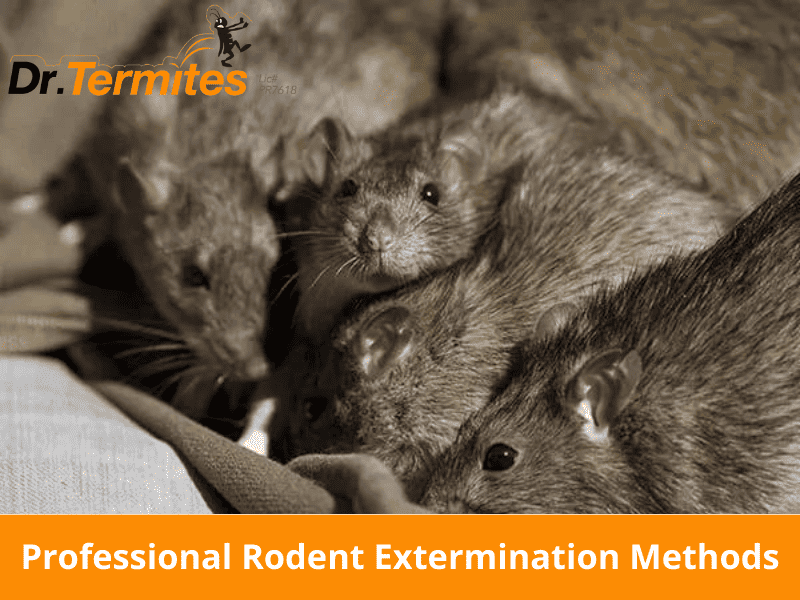
by pestcontrolseos | Mar 14, 2024 | Blog
Rodents can be a nuisance in any home or workplace, causing damage to property, spreading diseases, and creating an overall sense of discomfort. When faced with a rodent infestation, addressing the problem promptly and effectively is crucial. While there are DIY methods for rodent control, sometimes the situation calls for professional intervention. In this blog, we’ll examine the realities of hiring a rodent extermination service and how to prepare for it.

Why Should You Hire a Professional Rodent Exterminator?
Hiring a professional rodent exterminator is essential for effectively addressing infestations, as DIY methods can be ineffective and risky. Professionals bring expertise and employ safe, proven methods tailored to your situation. They ensure safety, offer peace of mind, and can save time and money by providing lasting solutions. Investing in professional services ensures a healthier, rodent-free environment, eliminating the stress and damage caused by infestations.
What to Expect from Professional Rodent Extermination
Inspection
The first step in professional rodent extermination is thoroughly inspecting the premises. Exterminators will identify entry points, nesting areas, and signs of activity to develop a targeted treatment plan.
Trapping and Baiting
Depending on the extent of the infestation, exterminators may employ trapping or baiting methods to capture or eliminate rodents. Snap, glue, and live traps are commonly used for trapping, while bait stations containing rodenticides may be deployed for larger infestations.
Exclusion Measures
In addition to eliminating existing rodents, professional exterminators often implement exclusion measures to prevent future infestations. These may involve sealing off entry points, repairing damaged structures, and modifying habitats to make the environment less attractive to rodents.
Monitoring and Follow-Up
Rodent extermination is not always a one-time process, especially in cases of severe infestations or recurring problems. Professional exterminators will monitor the situation closely and provide follow-up treatments to ensure long-term eradication.
Preparing for Professional Rodent Extermination
Preparing for professional rodent extermination is essential to ensure the process goes smoothly and effectively. Proper preparation can help exterminators do their job more efficiently and increase the likelihood of successfully eliminating rodent infestation. Here are some steps to take when preparing for professional rodent extermination:
Clear Clutter
Clear clutter and unnecessary items from the areas where rodents are present. Clutter provides hiding spots for rodents and makes it more difficult for exterminators to access infested areas. Removing clutter also allows exterminators to identify and treat rodent nesting sites more effectively.
Clean Up
Get every surface of the building spotless, but focus on the kitchens, pantries, and storage spaces because that’s where the rats have been hiding. Get rid of any crumbs, spills, or other waste that rats could use as a food source or an attraction. To further reduce odors and stop the spread of infections, disinfect and clean up any areas where rodents have left urine or droppings.
Seal Food and Trash
Be sure to seal any food items you have on hand, such as pet food, birdseed, and pantry staples. Rodents are attracted to open food sources, and their droppings and urine can contaminate them—secure garbage in tightly sealed bins to prevent rodents from accessing waste and creating additional food sources.
Seal Entry Points
Check the property for any openings that rodents could utilize to get inside, such as spaces around windows and doors, fissures in the walls, or holes in the base. If you want to keep rats out of your home, you can seal any cracks or holes with steel wool or caulk.
Remove Pets
If possible, remove pets from the premises during the extermination process. Some rodenticides and trapping methods may pose a risk to pets if ingested or accidentally activated. If removing pets is not feasible, discuss alternative arrangements with the extermination company to ensure their safety during treatment.
Communicate with Exterminators
Provide exterminators with relevant information about the rodent infestation, such as the areas where rodents have been observed, signs of activity, and any previous attempts to control the problem. Inform exterminators of any specific concerns or preferences you may have regarding treatment methods or products used.
Follow Exterminator’s Instructions
Follow any instructions provided by the exterminators before, during, and after the treatment process. This may include vacating the premises for a certain period, ventilating the area after treatment, and taking precautions to minimize exposure to treatment products.
Conclusion
Facing a rodent infestation can be a daunting challenge, but with the right professional help, it can be effectively managed and resolved. By understanding what to expect from professional rodent extermination and preparing your space accordingly, you can greatly enhance the treatment’s effectiveness and protect your property from future infestations. If you’re dealing with rodents, don’t wait for the problem to worsen. Contact Dr. Termites today for a comprehensive evaluation and tailored extermination plan. Let us help you reclaim peace of mind and ensure a safe, rodent-free environment for your home or business.
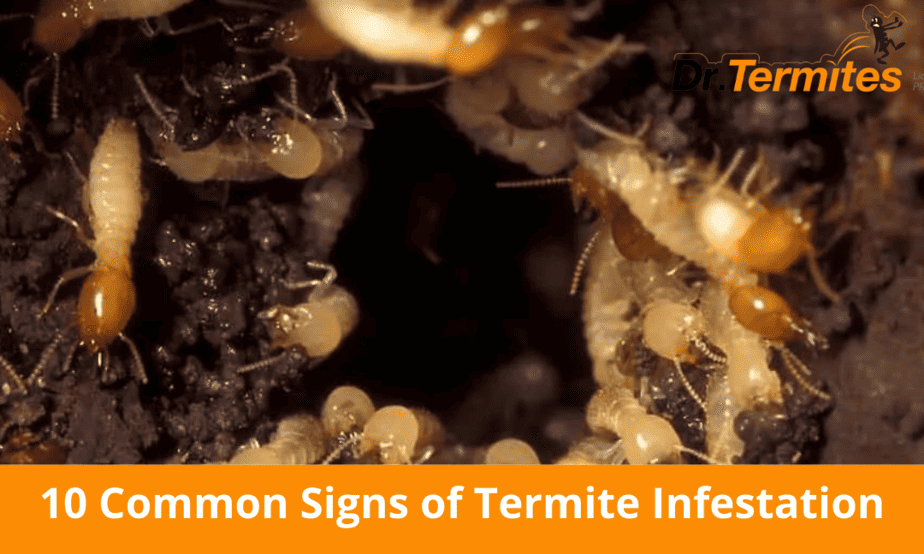
by pestcontrolseos | Mar 7, 2024 | Blog
In keeping your home well-maintained and safe enough for your loved ones, there are many things to watch out for. Apart from molds, leaks, broken fixtures, and the like, one of the most crucial things to identify are signs of termite infestation.
Once a colony of termites has penetrated your home, it can be very difficult to completely wipe them out of your property. You will have to ensure that every single one of them has been eradicated, because if there is even a single reproductive survivor despite your pest control efforts, that lone reproductive termite can start a whole new colony again.

Moreover, there can be more than one infestation site in a given property. For these reasons, it is very important to look out for the top 10 common signs of termite infestation and call a professional pest control company once you identify any of them.
In no particular order, here are the indications to keep an eye out for:
Sign #1: Hollowed-out Wood
Termites feast on wood from the inside out. For this reason, an infestation can be hard to spot – not until you notice your wooden walls, floors, and furniture getting hollow. They chew through the wooden objects and leave behind long grooves that somewhat look like a maze or honeycomb patterns. Because all that’s left when they are finished are the grooves with holes in between, this can easily weaken the wood and cause it to collapse.
It may not be obvious just by looking at them, but you can tell by gently tapping on your wooden areas and listening if they sound empty.
Sign #2: Mud Tubes
Subterranean termites are known to nest underground as they require soil to survive and only come to the surface when hunting for food. They feast on both wet and dry wood and usually target your home starting from the ground up.
You can find their trail in the form of mud tubes in the foundation of your home or even on trees. Because they love warmer climates, these mud tubes also shield them from the cold or dry air. The more mud tubes they formulate, the more your property turns into a welcoming environment they can thrive.
Sign #3: Bubbling Paint
The main component of wood that termites target is cellulose, which is also present in drywall. If you notice bubbling paint, wallpaper, or even pin-sized holes within your drywall, this can be a sign of termites chewing their way through.
Sign #4: Structural Damage
We’ve mentioned earlier to look out for hollowed wood, this is also to prevent further structural damage to your home. It’s not only in the walls, floors, or wooden furniture but also in ceilings, support beams, and your property’s foundation.
When termites eat through these, it can significantly compromise the integrity and durability of your home. Not only is this very dangerous but it can also be very difficult and expensive to remedy.
Sign #5: Swarmers
Swarmers are also known as flying termites (yes, it’s terrible, they can fly, too). The main reason termites fly off is to find mates elsewhere and start new colonies on their own. You can expect to see thousands of termites with every storm, with this occurrence happening mostly in spring.
If you notice a swarm of flying termites near your property, this is a sign that there are infestations nearby.
Sign #6: Discarded Termite Wings
Termites that are inside your own can be very attracted to natural light coming from outside. Because of this, they will fly towards it and twist their wings off once they are near. You may find these discarded wings by windows, doors, and other entry points. This indicates active termites looking to build new colonies nearby.
Sign #7: Drywood Termite Droppings
As their name suggests, drywood termites love to eat and nest inside dried-out wood. Because wood comprises their entire diet, their droppings will also be made of wood. To keep their surroundings clean, they kick out all excrement from their nest, which looks like tiny pellets almost similar to sawdust. Seeing this indicates drywood termites right below the surface.
Sign #8: Moldy Scent
Many types of termites love moist wood, which usually has a moldy scent. If you notice a similar smell, this could be a sign of infestations nearby or at the very least, something that could attract an infestation.
Sign #9: Stuck Doors or Windows
Because termites eat through wood, they can cause the structure to buckle, warp, or break apart. Because of this, it can make opening and closing doors and windows a little tricky. If not tricky, you may notice that they can no longer close all the way.
Sign #10: Uneven Flooring or Tiles
Termites that target your flooring can cause uneven foundations or loosen out your tiles. You may even notice noisier wooden floors when you walk over them.
Conclusion
Look out for these 10 common signs of termite infestations to prevent outbreaks from spreading and keep your home termite-free! For quick and effective termite control solutions, call Dr. Termites and we’ll send over a team of experts today!
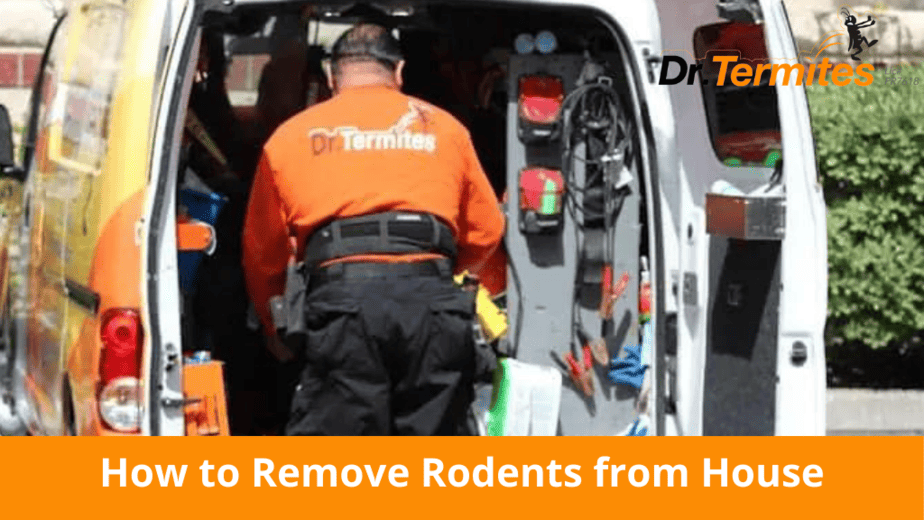
by pestcontrolseos | Feb 6, 2024 | Blog
Rodents, though small, can cause significant issues when invading our homes. From chewing on wires to spreading diseases, these unwanted guests can turn your peaceful abode into chaos. But removing rodents doesn’t have to be daunting. With proper preparations and techniques, you can reclaim your home and keep it rodent-free.
This blog post will guide you through essential steps for preparing, implementing control measures, and maintaining a clean, safe environment to prevent future infestations.
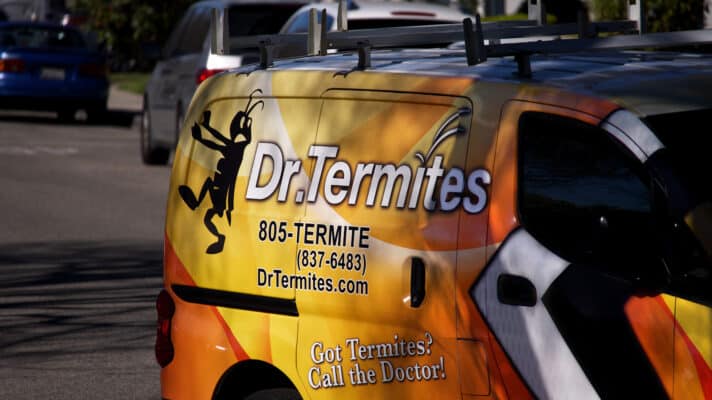
website banner
How Do I Get Rid of Rodents Permanently?
Dealing with rodents can be quite a hassle, as they not only cause damage but also spread diseases in your home. To help you get started on your rodent removal preparations, here are some crucial steps you should follow:
Inspect Your Home
Identify areas where rodents may be hiding or entering your home. Look for small holes, droppings, or gnaw marks as signs of their presence.
Secure Your Food
Rodents are attracted to food sources, so make sure all your food items are stored in secure containers that rodents can’t access.
Eliminate Potential Hiding Spots
Clear out cluttered areas in your home, such as basements and attics, where rodents might make their nests.
Use Traps and Baits
You can try snap traps, glue boards, or bait stations. Just make sure to place them in areas where rodents are likely to pass by.
When to Call a Professional for Rodent Problems at Home
While small rodent problems can often be handled with DIY methods, there are occasions when it’s necessary to call in the professionals. Here are some situations that require expert help.
Repeated Infestations
If you’ve tried DIY methods but continue to see signs of rodents, this could indicate a persistent problem. A professional pest control service can identify and address the root cause of the issue.
Large Infestation
If you’re seeing rodents frequently or finding droppings and chewed items throughout your home, you may be dealing with a larger infestation than you realize. Professionals have the tools and knowledge to handle such situations effectively.
Difficult to Reach Areas
Rodents often nest in hard-to-reach areas like attics, basements, or within walls. If you suspect this is the case, a professional can help. They have the equipment and expertise to deal with rodents in these challenging locations.
Damage to Property
Rodents can cause significant damage by chewing through wires, insulation, and even structural elements of your home. If you notice substantial damage, it’s time to call a professional before it gets worse. Must Read: Can Peppermint Oil Get Rid of Bed Bugs?
What Keeps Rodents Away from Your Home?
Keeping your home free from rodents is essential for maintaining a clean, healthy, and safe environment. Here are some effective strategies to keep these unwelcome guests at bay.
Maintain Cleanliness
Rodents are attracted to areas with food and shelter. Keep your home clean and clutter-free to reduce the likelihood of providing them with these necessities. Regularly clean your kitchen, ensuring no food scraps are left out. Properly dispose of garbage and tightly seal food containers.
Seal Entry Points
Rodents can squeeze through surprisingly small holes and cracks. Inspect your home for possible entry points and seal them. Pay close attention to areas where pipes or wires enter your home, as these are common entryways for rodents.
Use Repellents
There are various rodent repellents available on the market. These can be in the form of sprays, granules, or ultrasonic devices. When used correctly, they can deter rodents from entering your home. However, they should be used as a preventive measure rather than a solution to an existing infestation.
Trim Overgrown Vegetation
Overgrown vegetation around your home can provide shelter for rodents and can also act as a pathway into your home. Keep trees and shrubs trimmed, and make sure there’s a gap between any vegetation and your home’s exterior walls.
Store Firewood Properly
If you store firewood, make sure it’s stacked neatly and kept at a distance from your home. Stacks of wood can attract rodents and provide them with a perfect nesting site.
Get a Cat
Cats are natural predators of rodents. If you’re a cat lover, having one around can deter rodents from making your home their own.
Keeping Rodents at Bay: Proactive Measures and Professional Solutions for a Pest-Free Home
To handle home rodent problems, take preventive measures and act decisively. Keep things clean, seal entry points, and use repellents. For larger infestations, recurring issues, or hard-to-reach nesting areas, seek professional help. Experts offer effective solutions, reduce health risks, and prevent future infestations. Stay proactive and get help when needed for a rodent-free home.
Ready to reclaim your home from rodents? Don’t wait for the problem to worsen. Contact Dr. Termites today! Our pest control experts have advanced strategies and tools to handle any infestation, ensuring a safe, healthy, and rodent-free environment for your family. Act now and enjoy a pest-free home. Call Dr. Termites – Your trusted partner in maintaining a rodent-free residence!









































